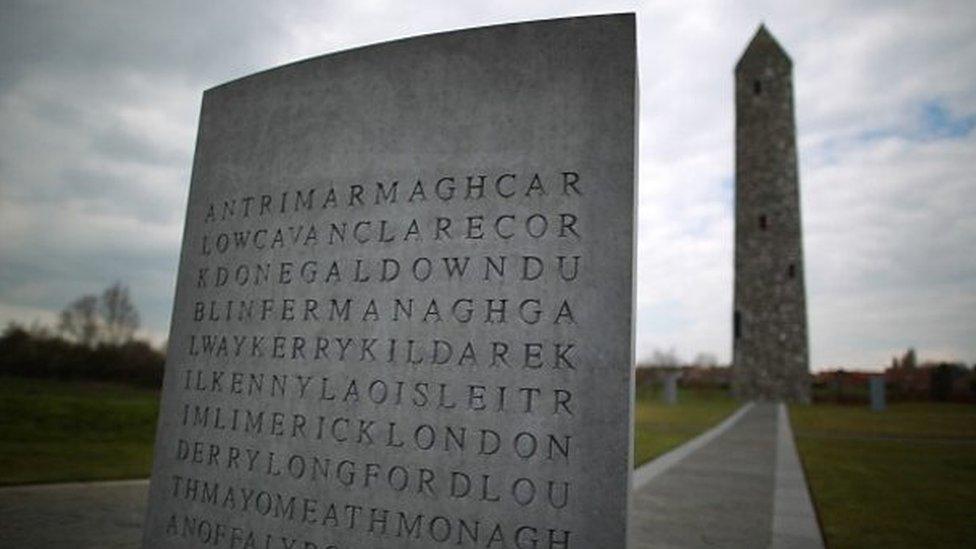UK-Ireland to host joint Messines ceremony
- Published

The ceremony will take place in the Island of Ireland Peace Park in Messines
The UK and Ireland will hold a shared commemoration ceremony to mark a major World War One battle in which nationalist and unionist soldiers fought together side-by-side.
The Battle of Messines Ridge in Belgium was the first occasion that soldiers from the 36th Ulster Division and 16th Irish Division were in battle together.
Both had fought at the Battle of the Somme but at different stages.
The ceremony will take place in Messines on 7 June.
The Northern Ireland Office said the ceremony would take place at the Island of Ireland Peace Park.
The battle was a notable victory for the Allies and involved the deployment of 19 huge mines which exploded beneath the ridge, killing as many as 10,000 soldiers.
'Common purpose'
Secretary of State James Brokenshire said: "We have seen all too well how history can divide, but our ambitious goal throughout this decade of centenaries is to seek to use history to bring us together, and to build on the political progress that has been made throughout these islands.
"This shared ceremony is an opportunity to remember the service and sacrifice of those who fought at Messines Ridge, as well as to further strengthen the important relationships that exists between the United Kingdom and Ireland."
Irish Foreign Minister Charlie Flanagan said: "Those from the island of Ireland were brought together by diverse motivations but they shared a common purpose as soldiers and, caught up in the grim realities of war, no doubt a common desire: to survive and return home."
The event will be ticketed. Those interested in attending should or the .
More than 200,000 Irishmen fought on behalf of Britain in World War One, including both unionists who wanted Ireland to remain a part of Britain and nationalists who wanted to protect Home Rule, in which Britain had agreed to devolve some parliamentary powers to Dublin.
- Published2 July 2016